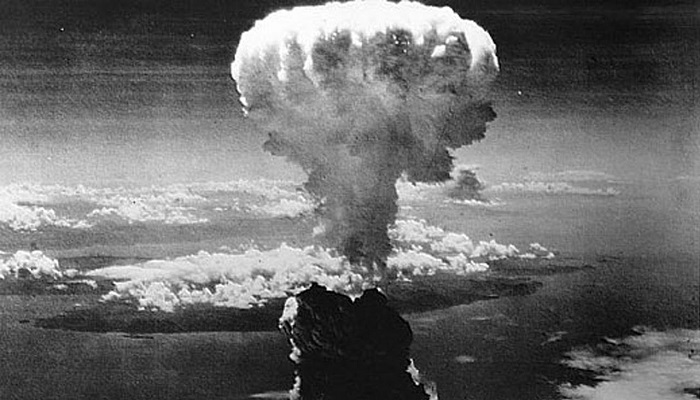
August 6, 1945, was one of the two bloodiest days in human’s history. Hiroshima and Nagasaki separated by about 300 km and three days were nuked by the United States in its attempt to end World War II.
On August 6, at 8.16 am local time – 4.46 am in India – America dropped the world’s first atom bomb over Hiroshima.
Literally, the word Hiroshima means ‘the broad island’. Hiroshima is situated on the largest island of Japan – Honshu.
Hiroshima was an important urban center in Japan when the B-29 bomber named the Enola Gay of the US unleashed the Little Boy on it. Little Boy was the nickname of the atom bomb that fell over the city of Hiroshima.
As per records, approximately 80,000 people were killed directly by the explosion of the atom bomb. Another 35,000 were injured and maimed for life. By the end of 1945, another estimated 60,000 people lost their lives under the impact of harmful radiations emanating from Little Boy.
By the end of 1945, Little Boy had killed more than 1,40,000 people in Hiroshima, which turned into heaps of mangled concrete and metal.
By August 1945, the World War II had started to show signs of fatigue. The countries engaged in the war were facing an acute crisis in their homelands. Japan, too, was under pressure but it was relentless.
Meanwhile, following the death of Adolf Hitler and defeat of Nazi Germany, Potsdam conference – also called the Berlin Conference – was held. At the end of it, Potsdam Declaration dictated by the US, the Soviet Union, and the United Kingdom, asked Japan to surrender unconditionally.
Japan refused to bow down. It continued conventional bombings on the targets of the allied forces. The United States President Harry Truman enraged with Japan’s response gave orders for atom bombing Hiroshima and Nagasaki.
Hiroshima was the headquarters of the Second General Army and Chugoku Regional Army of Japan during the During World War II. Hiroshima also had large depots of military supplies. It was a key center for shipping.
Tokyo had already been bombed and a large part of the city had turned into debris. Hiroshima was the major supply center for the Japanese army. For Truman and his American advisors, Hiroshima was the right target to bring Japan to its knees.
Truman justified nuking Hiroshima saying that there would have been much more loss of lives if American forces entered Japan. His logic was that he saved many more lives in Japan by giving nod for dropping Little Boy over Hiroshima.
So, other fighter air crafts of the allied forces were busy bombing various Japanese cities, Little Boy was mounted on B-29 being flown by Lieutenant Colonel Paul Tibbets. The bomber left for Hiroshima from the Mariana Islands near the Philippines and administered by the US around 2.45 am and 5.30 hours later, Little Boy was dropped on Hiroshima.
Little Boy had inscriptions engraved on its outer shell. One inscription read, “Greetings to the Emperor from the men of the Indianapolis.” The Indianapolis was the ship that transported the bomb from mainland America to the Marianas.
Little Boy exploded about 1,900 feet or 5,790 meters over a local hospital. The atom bomb released energy equivalent to the explosion of 12,500 tons of TNT (tri-nitro toluene). Of the 90,000 buildings that Hiroshima had before being nuked, only about 25,000 remained. The rest formed debris.
Over 70 per cent of its geographical areas came under the direct impact of the bomb. Today, Hiroshima is again a bustling city. Interestingly, Hiroshima has named the oleander as its official flower. Oleander was the first to bloom again a year after the Little Boy destroyed the parent city.

Post Your Comments